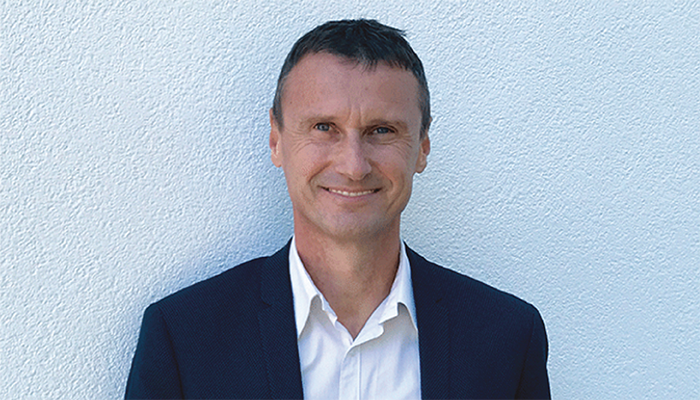
Credit: Supplied by Interviewee
What is the overall mission statement of the HPLC conference?
The HPLC conference series – as far back as 1974 – has always set out to be the premier venue to learn about the newest technologies and advances in liquid chromatography and related techniques. To achieve this, the conference includes lectures on the hottest scientific and technological evolutions, short courses and tutorials, an exhibition showcasing the newest instruments and columns, and a rich social program to stimulate networking. European HPLC editions usually draw a crowd of between 1200 and 1500 delegates.
How would you describe the current scope of the HPLC meetings?
The HPLC program covers all aspects of separation sciences in liquid and supercritical fluid phases, as well as hyphenation in advanced detection technologies (mass spectrometry in particular). With the 2025 program in Bruges, we’d also like to spotlight the “Related Techniques” extension in the official designation of the HPLC conference series. Furthermore, liquid chromatography is seldom the only separation technique in an analyst’s toolbox, which is why we also offer dedicated sessions and tutorials for related separation sciences; such as preparative chromatography, supercritical fluid chromatography, gas chromatography, field-flow fractionation (FFF) and other particle separation techniques.
What would you say are the main developments and challenges in separation science today?
One key trend in pharma in recent years has been a move towards the analysis and characterization of evermore complex modalities, including adeno-associated viruses (AAVs) and mRNA-loaded lipid nanoparticles. Chromatographers are, therefore, being encouraged to expand their toolbox with new techniques, such as asymmetric flow-field flow fractionation (AF4). To meet this need, dedicated tutorial and topical sessions on FFF are planned for our program.
Another important trend is the implementation of AI at all possible levels of data analysis and instrument automation. To help those unfamiliar with AI and machine learning, HPLC 2025 is organizing a short, entry-level course and tutorial. For the experts (or just those with a keen interest), we’ll have dedicated sessions on AI for data analysis and a session featuring AI-based instrument automation, called “The Intelligent Instrument.”
Sustainability also remains a hot topic. In turn, the program will feature a dedicated oral session, as well as a tutorial by Elia Psillakis on how to best quantify the greenness/sustainability level of your methods/lab. A topical poster competition featuring an assessment of methods displaying green metrics is also planned.
Which other sessions or innovations do you expect to make up the highlights of the program?
We’re expecting some buzz during the poster sessions, which for the first time will be organized as “poster & exhibitor fests,” including new opportunities for interactions with the exhibitors.
We’re also expecting a lot from our “bring your boss to the HPLC conference” initiative. For senior lab managers joining this program, there will be two “invitation-only” half-day sessions wherein industry leadership can share experiences and good/bad practices in lab management and organization. There will also be the opportunity to develop their views on HPLC instruments, laboratories, workflows, and the skills required by the next generation of analytical talents. The conclusions of these sessions will then be discussed with the rest of the delegates in a plenary debate session.
Could you expand a little more on the theme of industrial developments?
While advances in academic chromatography research have slowed in recent years, the total number of HPLC industry professionals nonetheless keeps growing. However, the number of active HPLC practitioners working in the industry who didn’t receive their primary training in chromatography and separation science also continues to grow. Therefore, we believe the future of the HPLC conference series will be an event where active chemical analysts can expand their chromatographic knowledge, discover new automation and data processing methods and, above all, learn from each other's experiences.
A new initiative to facilitate this is our dedicated “industry stories” sessions, showcasing the most interesting examples of problem solving in industry. In addition to typical success reports, here we’ll encourage presenters to reveal the mistakes they’ve made (if any), and any challenges or setbacks faced. Next, we will also have dedicated oral presentation sessions on sustainability, lab and workflow automation, data processing and preparative chromatography.
Another cornerstone in the industry-oriented part of the program will be a plenary debate on the current challenges and future opportunities for HPLC analysis in industry.
Can you name some speakers to look out for?
Koen Sandra will kick off the conference with a didactic and visionary talk about the (very timely) topic of mRNA structural characterization. Our second plenary opener will be professor Kerstin Thurow – she heads the center for life science automation (CELISCA) and will be talking about current developments and future perspectives in analytical laboratory automation.
A few more notable topics include thoughts on recent innovations in mass spectrometry from Alexander Makarov, the processing and mining of chromatographic data with industry perspectives by Joachim Richter (former VP at BAS, before his recent retirement), and demonstrations from Ryan Kelly on in-depth single-cell proteome coverage in 5 minutes or less. We’ll have Bob Pirok speaking on the sense (and nonsense) of AI in chromatography, numerous contributions on oligonucleotide and AAV analysis and Pascal Mieville from the EPFL Lausanne will discuss the road towards a self-driving laboratory.
Finally, why choose Bruges?
Bruges is a great city to host a conference, with all hotels, city highlights, restaurants and pubs (and there are many of these) within walking distance. Often referred to as the “Venice of the North,” Bruges is famous for its well-preserved medieval architecture and culinary delights, such as Belgian chocolates, waffles, and beers. The entire city is a UNESCO World Heritage site with easy accessibility through the well-connected international airport in Brussels. Major European cities such as Amsterdam, London and Paris are within a range of maximally 300km, and all are easily connected by high-speed trains.




